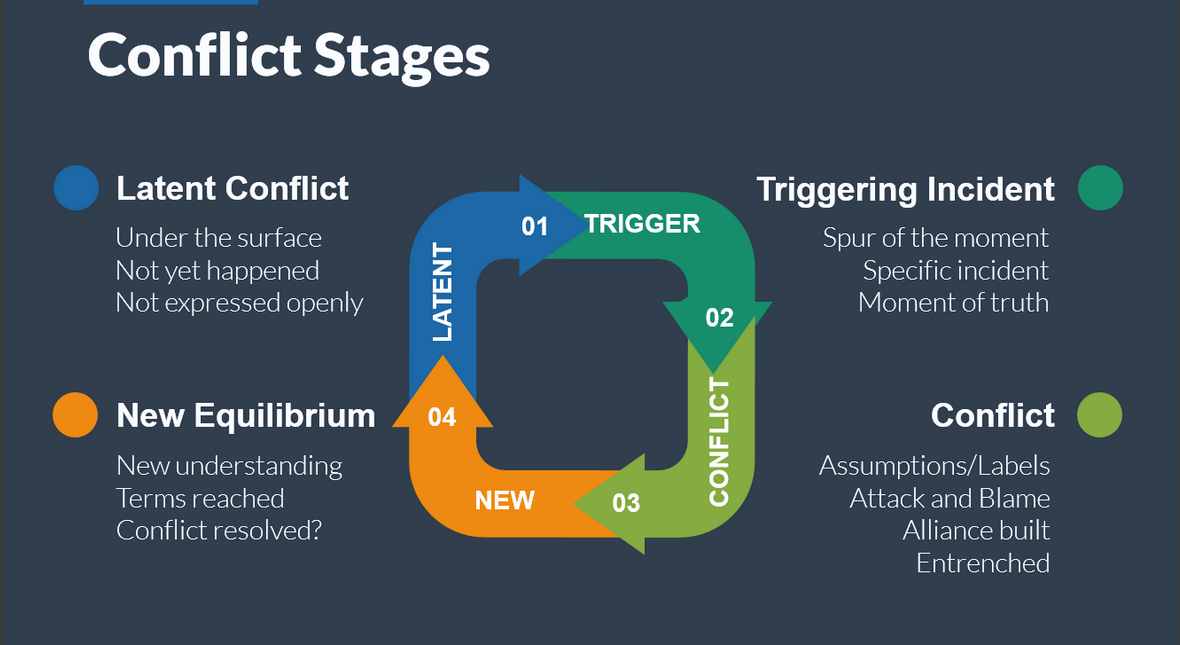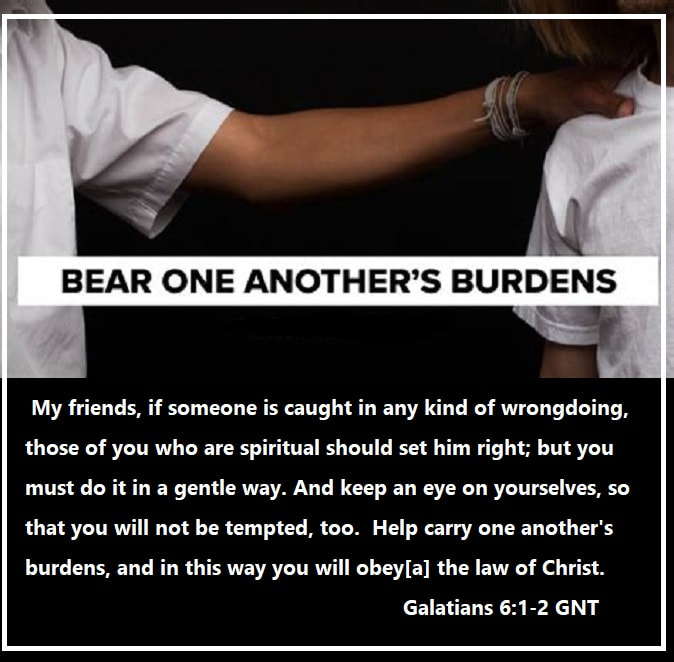Conflicts are inner struggles
based on competing
desires, values, or beliefs
"Whenever you're in conflict with someone, there is one factor that can make the difference between damaging your relationship and deepening it. That factor is attitude."
William James
Conflicts Are Normal
Because Of Our Differences
Because Of Our Differences
Conflict is a normal part of life — even among people who care deeply about each other.
Our differences in background, personality, and perspective mean that misunderstandings and disagreements are bound to arise. But how we respond in those moments reveals the condition of our hearts. Will we react in anger, defensiveness, or pride — or will we pause, listen, and seek peace?
Our differences in background, personality, and perspective mean that misunderstandings and disagreements are bound to arise. But how we respond in those moments reveals the condition of our hearts. Will we react in anger, defensiveness, or pride — or will we pause, listen, and seek peace?
Discernment
Handling conflict well requires spiritual discernment.
It means slowing down long enough to let God shape our response — not just our words, but our posture. Instead of defaulting to control, blame, or withdrawal, we’re invited to choose the way of Christ:
It means slowing down long enough to let God shape our response — not just our words, but our posture. Instead of defaulting to control, blame, or withdrawal, we’re invited to choose the way of Christ:
- Stay curious rather than combative
- Practice humility instead of self-justification
- Pursue love over the need to win an argument
Patience And Composure
Calming down as you listen, pausing before speaking, and resisting the urge to react in anger allows you to better discern the heart of the issue. When you slow the cycle of conflict, you create space for wisdom, understanding, and grace to enter.
That’s why James 1:19 is such a powerful tool for real-life peace. Memorize it. Let it shape your habits. Keep it close when tensions rise:
“Be quick to listen, slow to speak, and slow to become angry.” — James 1:19
🙏 Prayer:
Lord, help me slow down when emotions rise. Teach me to listen with grace, speak with wisdom, and choose peace over pride. Shape my heart to respond like Jesus. Amen.
That’s why James 1:19 is such a powerful tool for real-life peace. Memorize it. Let it shape your habits. Keep it close when tensions rise:
“Be quick to listen, slow to speak, and slow to become angry.” — James 1:19
🙏 Prayer:
Lord, help me slow down when emotions rise. Teach me to listen with grace, speak with wisdom, and choose peace over pride. Shape my heart to respond like Jesus. Amen.
Moving Through
The Four Stages of Conflict
- Identify The Latent Conflict
Differences in needs, values, goals, or limited resources often create tension beneath the surface — even when not openly expressed. - Recognize The Triggering Incident
A small event or comment can bring unresolved issues into the open, acting as a spark for deeper conflict. - Slow The Conflict Escalation
Emotions rise. Communication often breaks down as individuals focus on defending themselves rather than resolving the issue. - Reach A New Equilibrium
Once the conflict is addressed, a new balance or understanding emerges — restoring or redefining the relationship.
Following the Steps
Moving through conflict can happen more quickly — and constructively — by practicing the following steps:
1. Identify the Core Issue
1. Identify the Core Issue
- Clarify what's really at stake: needs, assumptions, values, or misunderstandings.
- Consider your own emotions.
- Try to understand the feelings, needs, and concerns of the other person.
- Focus on how the issue affects you without assigning blame.
- Example:
“I feel frustrated when deadlines aren’t met because it affects my schedule. I need us to set realistic timelines.”
- Give full attention. Reflect back what you hear.
- Ask clarifying questions like:
“Can you tell me more about how that made you feel?”
- Suspend judgment. Aim for win-win outcomes.
- Collaborate on possible solutions before choosing the best one.
- Define who will do what and when.
- Decide how you’ll track progress or hold each other accountable.
- Stay connected and evaluate whether the solution is working.
- Acknowledge improvement in the relationship.
- Consider what you’ve learned and how it helps prevent future conflicts.
Hope For Those Who've Had
Conflicts And Setbacks
You may have had good teaching as you grew up, but failed to sow good things. Inner conflicts and poor choices separate us from God and his Holy Spirit, who enables us to surrender to God and trust His will for our lives. We can easily live our lives without God. That is how things are in this world. But finding the humility and courage to face those conflicts comes through Christ and his Holy Spirit. The above conflict stages could help you arrive at new approaches. May you find the grace and strength to repent and follow Him daily.
Facing the Confusion And Doubts
Some children and young adults who are raised in Christian families experience confusion and doubts about their faith when they leave home, when they face antagonistic views in college, when they stop going to church, when they date or marry an an unbeliever, or when personal sin separates them from God. The testing of one's faith can have a beneficial effect when one is able to honestly share with another Christian brother or sister what is happening in their life. Parents and grandparents can also offer prayer and support during these difficult periods of life. If this has happened to you, please ask God for courage to share what's happening in your life. Don't avoid your family or your church during this difficult time. God can bring you home.
Sowing And Reaping
Have You Received
The Help You Need?
Not Perfect,
Just Forgiven.
Disciples of Jesus don't claim to be perfect, just forgiven. He keeps us and makes us faithful. If we could pray for you or search the Scriptures for His help for you, where you are right now, and day by day going forward, please take the time to reach out to us. We count it a privilege to be here for you.


